One of the most popular gardening suggestions is to pour brewed coffee on soil, or scatter discarded coffee grounds across your yard for spectacular results. But what are the facts? How does coffee affect plants.
Coffee will not appreciably affect soil pH, since coffee’s pH is ~6.7 (close to neutral). Coffee grounds contain nitrogen, but first must be composted for the nitrogen to be available to plants. Caffeine tends to inhibit plant & root growth.
So, while many people tout the benefits of coffee, the reality is a bit different. Let’s dig in & find out how coffee actually affects plants.
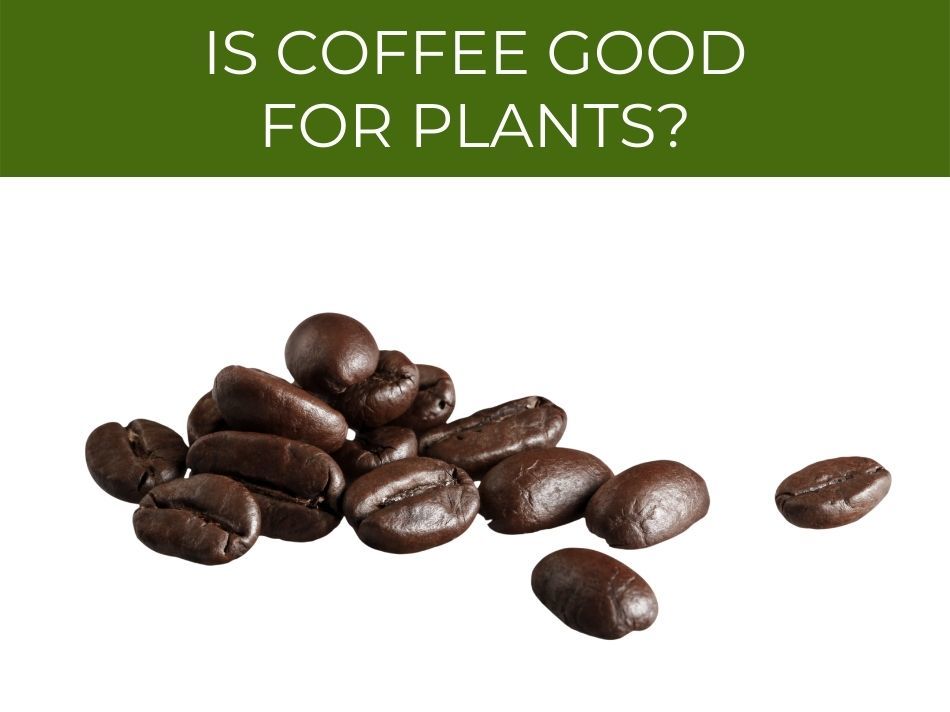
Is Coffee Good for Plants?
Brewed coffee in large amounts tends to stunt plant growth and inhibit germination; this might be due to high caffeine amounts. Coffee grounds, added to compost, can add organic matter and improve soil drainage. Neither brewed coffee or coffee grounds significantly affect soil pH.
A personal experiment
I decided to put the notion to the test this summer on two similar vegetable beds featuring a mix of tomatoes, lettuce, herbs, and flowers, as I was always eager to try out a strange horticultural tip and as a bit of a coffee fanatic.
So, after seeing enormous barrels of spent coffee grounds at my local organic coffee shop–complete with scoops and brown bags, free to customers to collect, beneath a sign explaining its many horticultural virtues, I decided to try an experiment.
This was hardly a scientific study, but rather a haphazard effort to gratify a fleeting interest. By the end of the summer, I’d just pour my daily coffee grounds on the surface as a mulch (as suggested by books and blogs), resulting in a gorgeous black inch-thick layer of coffee compost.
What was the result?
Within 2 weeks of treatment, the output and growth of almost everything in the coffee bed had deteriorated substantially. Plants’ development slowed, some experienced leaf yellowing, while others perished as a result of defoliation.
Germination of seedlings was nearly impossible in several circumstances. While several species appeared to be acceptable, none of the plants in the coffee group outperformed my simple control. However, all it does is add organic materials to the mix.
What went wrong, exactly?
So I did some research and, to be honest, I was furious. Coffee is, no doubt, rich in caffeine. Caffeine has the power to limit the development of nearby species, hence reducing competition. It helps in suppressing the germination of other seeds.
It also appears to stifle root growth in young plants, stopping them from absorbing water and nutrients, according to a few studies.
Others have discovered that it has antimicrobial properties (so much for boosting soil bacteria). Well, it isn’t necessarily highly acidic, either. Although the effects have varied greatly depending on the plant species, it has never demonstrated massive advantages that might exceed the hazards.
I enjoy a quirky bit of horticultural advice, and some are repeated so frequently that you feel they are real. However, you need to be really careful while using coffee for plants.
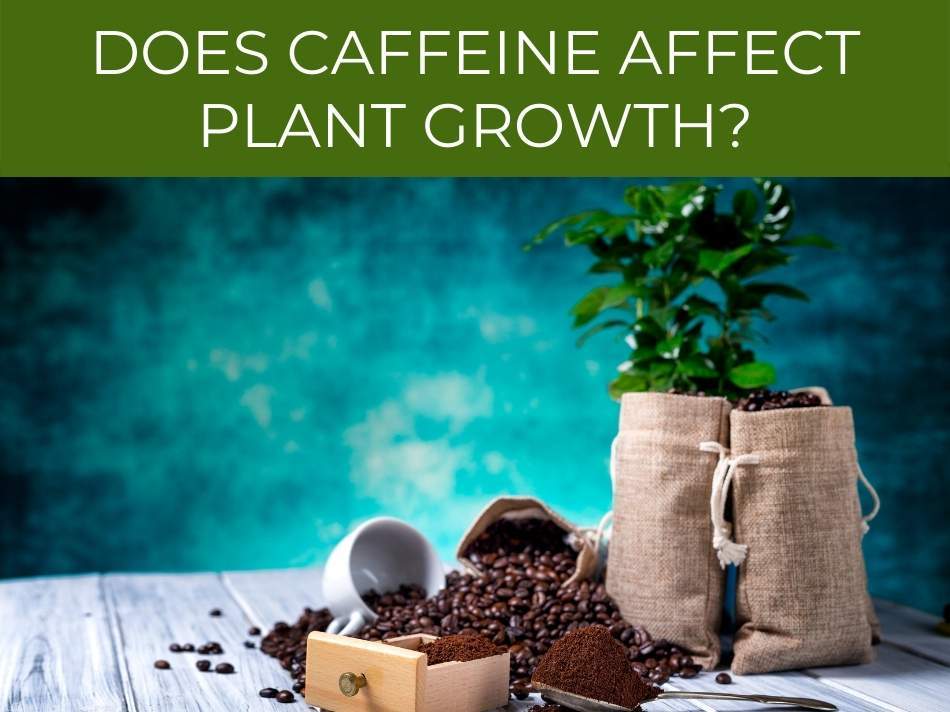
Does Caffeine Affect Plant Growth?
Caffeine works as a stimulant in humans, but it does not have the same effect in plants. Experiments have revealed that some plants can tolerate a modest quantity of caffeine, but that at high enough concentrations, their seeds will be stunted or will not germinate.
Plants, like people, require calcium. Caffeine causes a plant’s cellular calcium to be released, blocking or reducing the plant’s nutrient-dependent cellular activities.
While caffeine may be hazardous to plants, adding coffee grounds to a garden’s soil is not always harmful and has been demonstrated to have beneficial benefits for some plants.
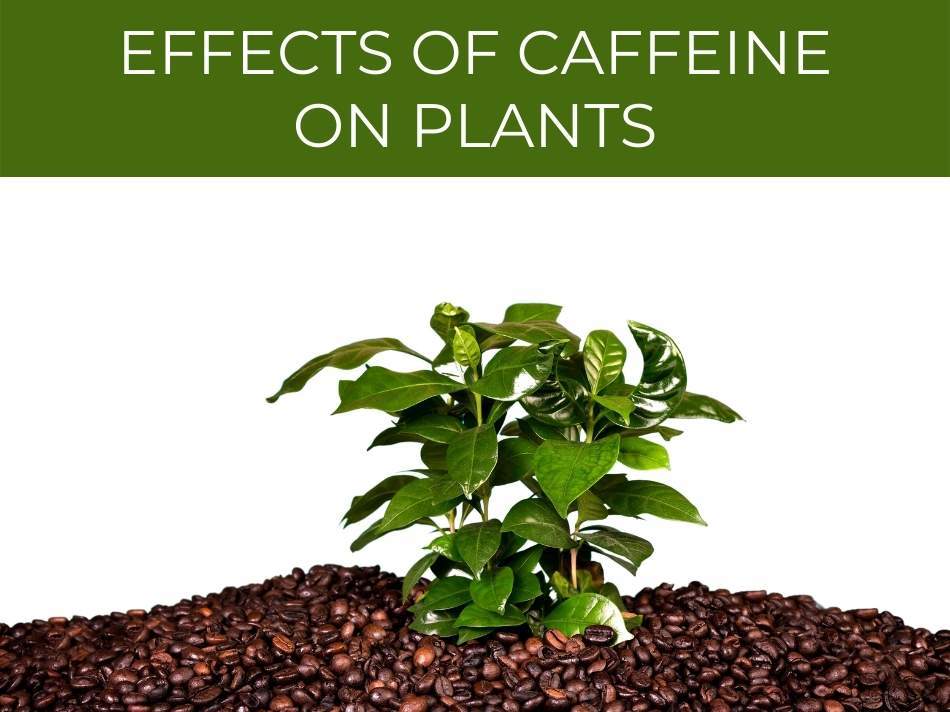
Effects of Caffeine on Plants
Caffeine tends to inhibit plant & root growth, based on multiple studies.However, caffeine can be a possible insecticide, and may also increase pollination by bees.
- Caffeine as an Insecticide
When finely crushed Camellia sinensis leaves and Coffea arabica beans were introduced to a liquid medium at concentrations of 3 percent and 10 percent, tobacco hornworm larvae showed a dose-dependent suppression of eating activity.
The larvae were destroyed within 24 hours if the concentrations were exceeded. This particular study also discovered that pure caffeine, which may be found in fresh tea leaves and coffee beans, was harmful to most larvae, indicating that caffeine could be used as an insecticide.
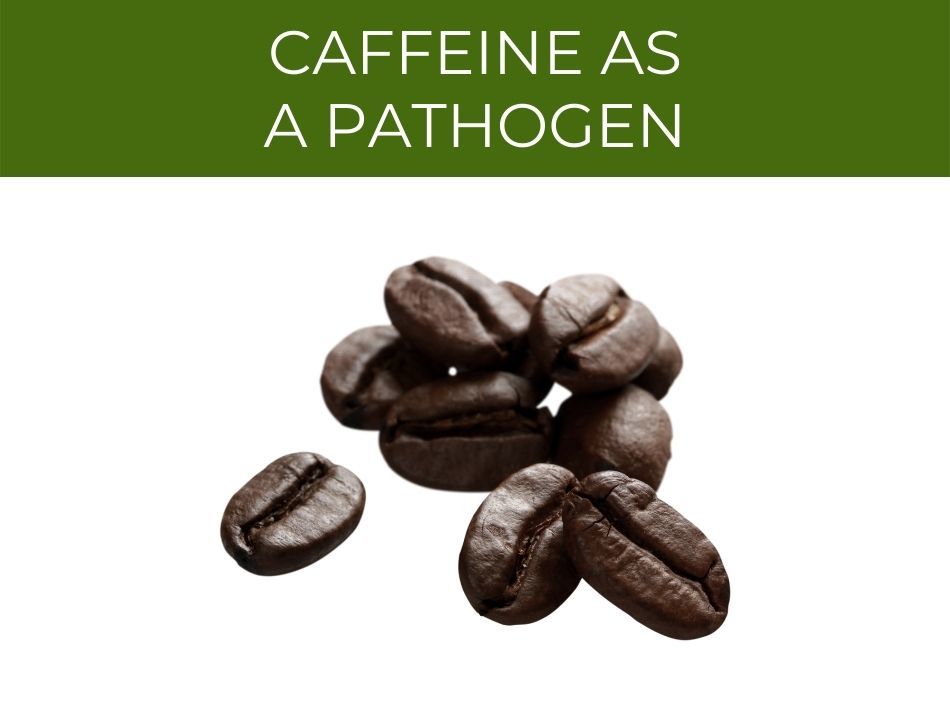
- Caffeine as a Pathogen
Another study found that coffee boosts pathogen resistance by functioning as a signaling molecule and raising salicylic acid synthesis right after infection, triggering a more hypersensitive response.
Its specific physiological function in plants, however, is unknown. Many studies show that self-defense signaling pathways in plants, such as salicylic acid synthesis, may have evolved to compensate for these negative consequences, which serves a dual purpose in that it also protects against biotic stressors.
- Caffeine Aids in Pollination
Caffeine is known to be a defensive molecule, thus, its presence in the nectar of several Citrus and Coffea species was unexpected, leading researchers to suspect it may potentially give a reproductive benefit.
Individual honeybees fed caffeine-containing nectar were three times more likely than those not fed caffeine to recall the aroma of the rewarding flower 24 hours later, according to one study. After 72 hours, bees were twice as likely to maintain smell memory.
Citrus and Coffea reproduce in a pollinator-dependent way, as their intensely scented blossoms indicate. The researchers hypothesized that coffee might improve long-term associative memory, making pollinators more likely to return to flowers with similar fragrance cues.
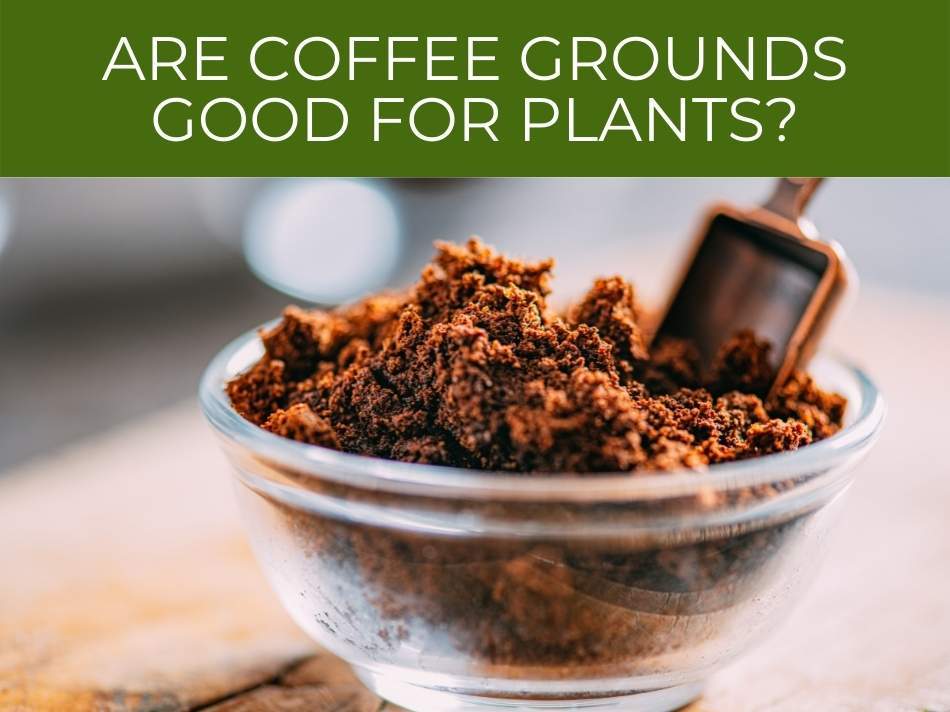
Are Coffee Grounds Good for Plants?
Is it true that coffee grounds make good fertilizers? Well, it is contingent on how you want to use them in the garden.
Coffee grounds include tiny amounts of soil-friendly elements such as nitrogen, phosphorus, and potassium. Coffee grounds are a wonderful slow-release fertilizer because they slowly release these nutrients into the soil. However, coffee grounds can also lead to soil compaction if not tilled into soil.
However, there is one major drawback to utilizing coffee grounds in your garden: if you add them to the soil directly, they may impede some plants, particularly tomatoes.
There isn’t enough study to know why certain seedlings struggle when coffee is introduced to the soil, but it’s far preferable to add your coffee grounds to your compost heap and let them decompose before utilizing them in the garden.
For additional info, check out our complete guide to coffee in the garden.
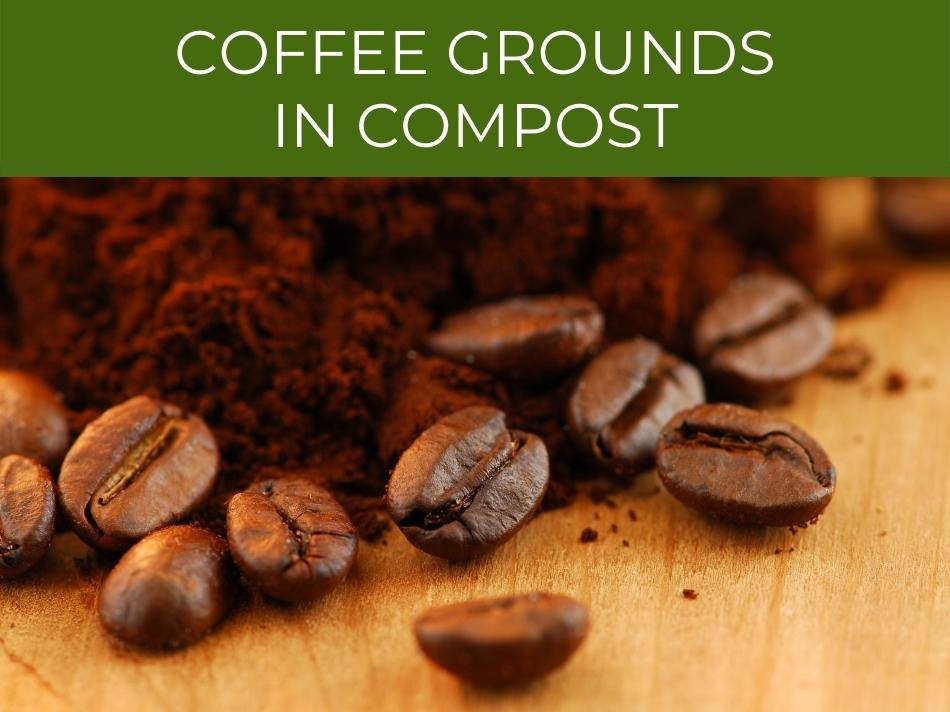
Coffee Grounds in Compost
The fundamental advantage of compost is enhanced soil structure rather than the addition of any specific mineral, and coffee grounds added to compost help with the vital microbial breakdown process that helps your garden soil.
- Adding coffee grounds to compost is the safest method to use them. Make sure you just add enough grounds to make up 10 to 20% of your entire compost volume. If they get too high, they may stop helpful microorganisms from breaking down organic stuff.
Adding 4 parts shredded leaves to 1 part coffee grounds is another technique to achieve this amount (by weight). To counteract the early acidity of the grounds, some people still recommend adding lime or wood ash to the compost. You can do it if you like, but it isn’t essential. If you’re going to do it, aim for a 1 cup of lime or ash to 10 pounds of coffee grounds ratio.
Check out our complete article on how to make compost.
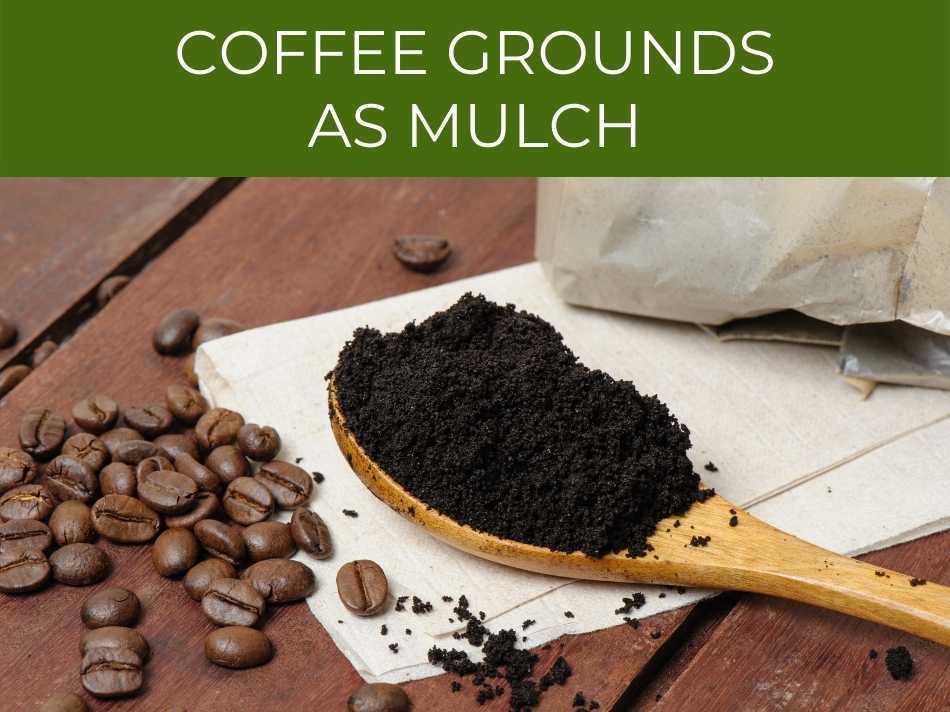
Coffee Grounds as Mulch
Coffee grounds do tend to be high in nitrogen, but the coffee grounds need to first be composted before the nitrogen is available to plants.
Coffee grounds as a heavy mulch isn’t a good option since they compress, generating a barrier that prevents air and water from passing through. Use a thin coating (half an inch, tops) of grounds on top of a bigger layer (2-4 inches) of organic materials, such as shredded bark, wood chips, or compost, to distribute grounds on the soil.
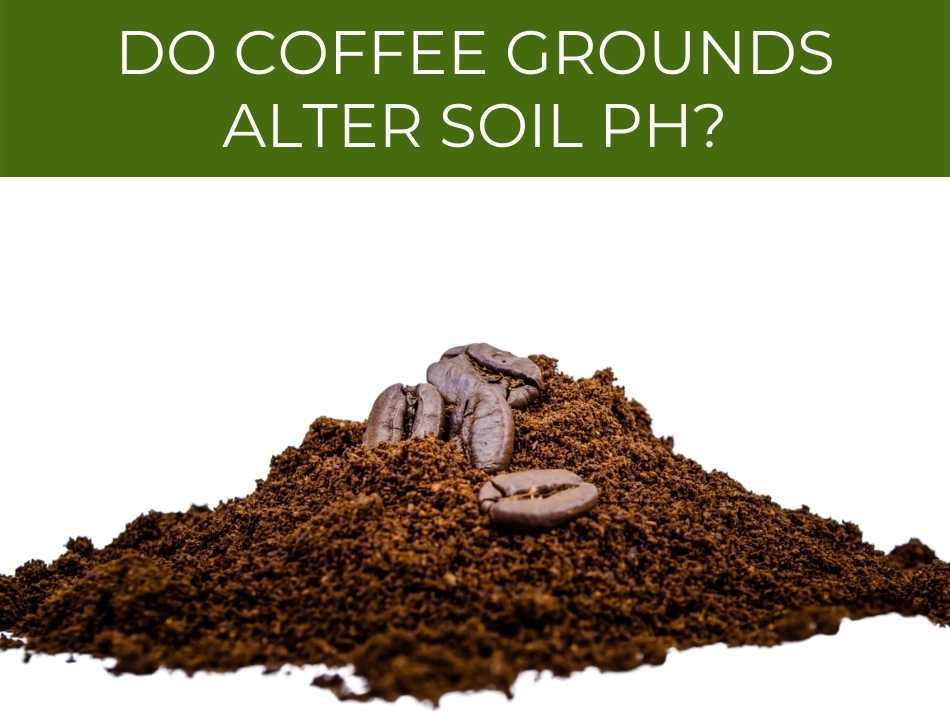
Do Coffee Grounds Alter Soil pH?
Coffee grounds–contrary to popular conception–do NOT alter soil pH. A generally reported pH value for normal coffee grounds is 6.7, which is ‘just barely acidic’ and not quite enough to acidify the soil. There may be a little shift in your soil pH if your soil is particularly alkaline, but don’t expect coffee grounds to rebalance your soil pH to the point that you can grow acid-loving plants like blueberries.
Other Benefits
Beneficial organisms are also attracted to coffee grounds in garden beds. Earthworms are attracted to coffee grounds and may help with a variety of tasks in the garden, including converting organic matter into plant food and boosting the quantity of oxygen and water in the soil.
Late blight, a fungal disease that causes lesions on tomato plants before damaging the crops, is similarly combated by coffee grounds. Fungicides are commonly used to treat the condition, but coffee grounds provide a benign, natural option.
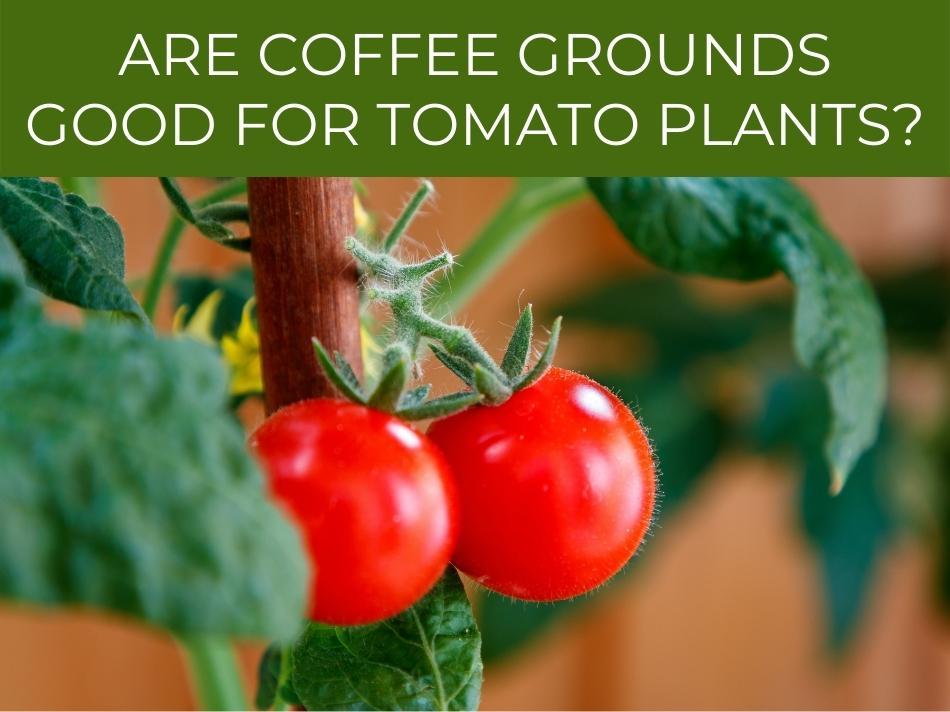
Are Coffee Grounds Good for Tomato Plants?
Many gardeners have found that discarded coffee grounds work well on acid-loving plants such as azaleas, rhododendrons, blueberries, and, of course, tomatoes.
However, because used coffee grounds have a pH of roughly 6.8, some caution is required. Tomatoes want somewhat acidic soil, but not too acidic soil. This may be accomplished quickly by overcrowding your garden with too many coffee grounds.
Coffee grounds are high in nitrogen, but must first be composted before that nitrogen is available to the plants:
Check our the complete guide on how to grow more tomatoes
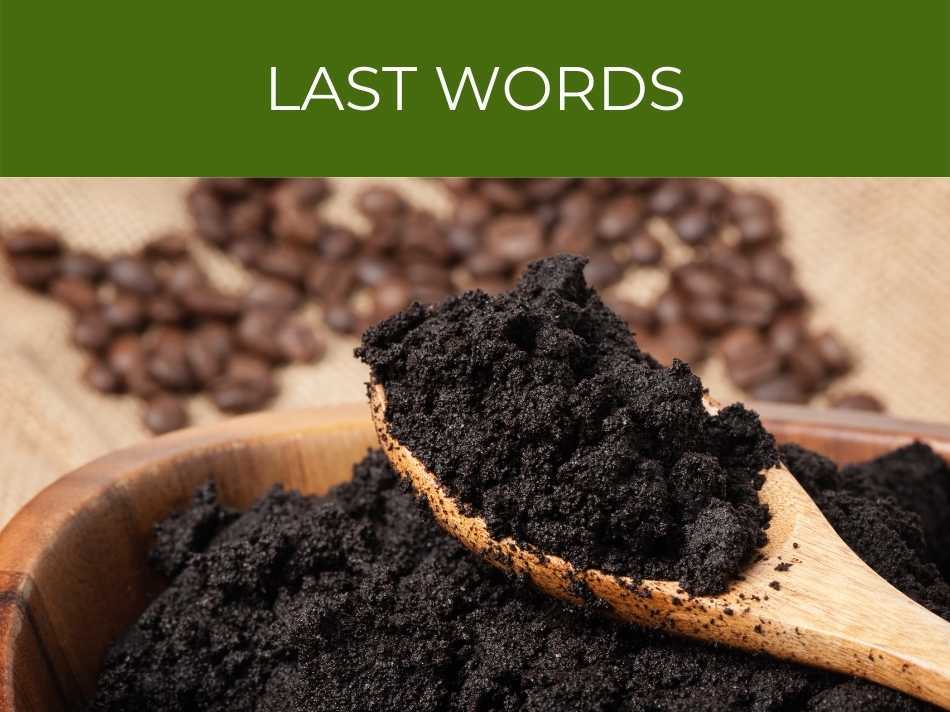
Last Words
Coffee works great for most plants. Many gardeners are already using it as a source of fertilizer. You can use it for not only outdoor plants but also indoor plants. It would help your plants grow healthy and happy.

